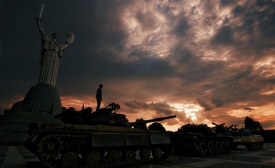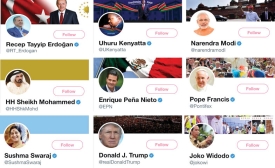In the case of shared history, there is no way to suggest an appropriate narrative of any historical event that would be satisfactory for all counterparts. Digital rewriting, reevaluation, or reassertion of history is inevitability problematic. The only way to eliminate such conflicts and disconnect raised on social media is to emphasize “shared understanding and mutual openness.”

Olga Krasnyak discusses how disputes over historical memory in Russia and the Baltic States have played out on social media.

Chris Hensman & Shawn Powers discuss how the rise of digital technology poses a threat to PD practitioners.
The Women Against Violent Extremism, WAVE, campaign, developed by AUN students, has reached the international final of the Facebook Global Digital Challenge. [...] The AUN students' WAVE campaign, tagged #IAmABeliever2, seeks to promote religious tolerance in Nigeria by inspiring women and girls in the country to value their beliefs, respect the beliefs of others and take action against violent extremism within their communities.

Burson-Marsteller has released its second annual Twiplomacy study.
Technology allows governments and citizens to communicate faster and more effectively. In the age of “digital diplomacy”, the ability to harness digital platforms effectively to engage people, exchange ideas and deliver key messages is more important than ever. Prime Minister Narendra Modi provides a great example of digital diplomacy done well by a head of a state. His use of digital tools has been central to his success both as a politician and India’s global advocate-in-chief.

A new article by Ilan Manor looks at the U.S. State Department's attempts at branding America.







